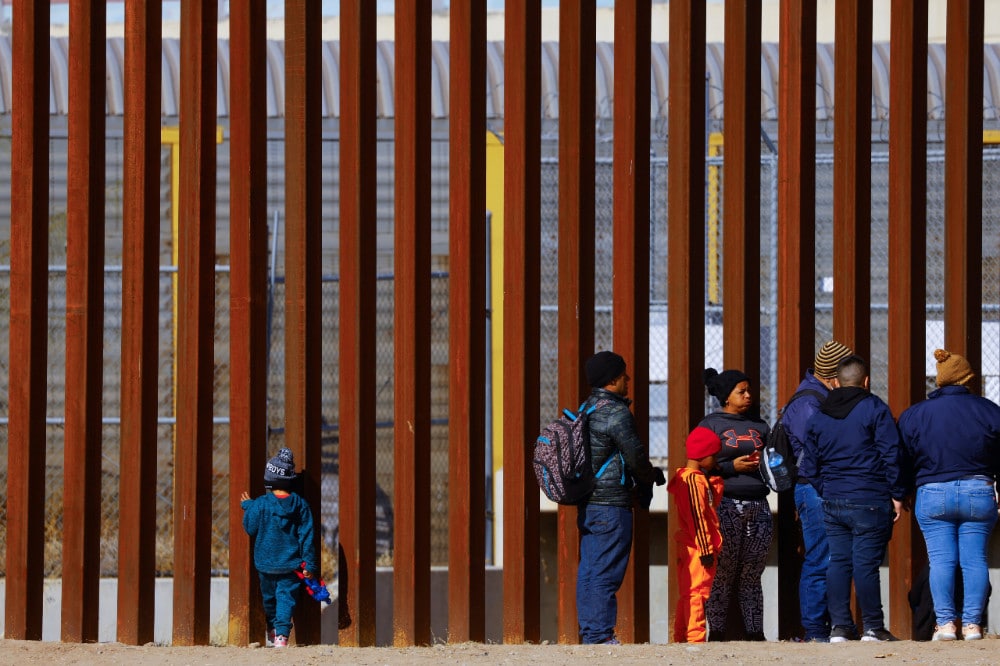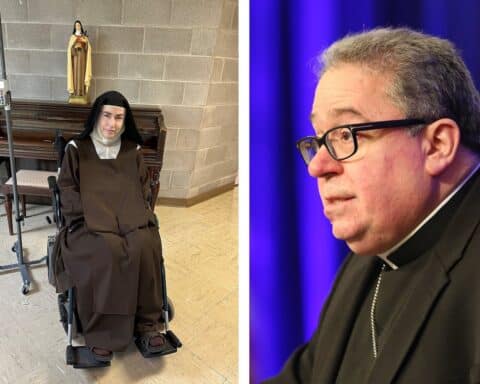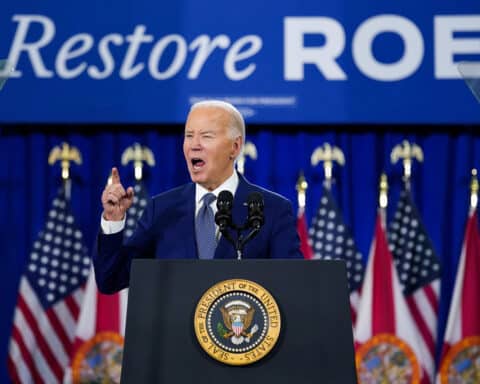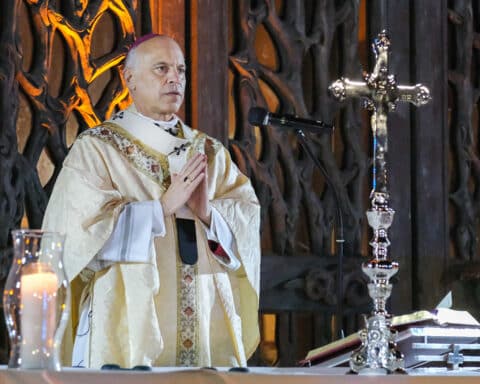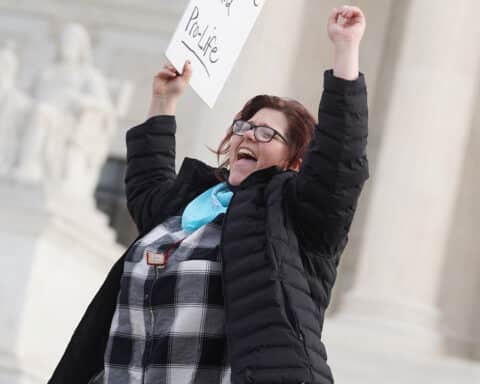WASHINGTON (OSV News) — The Biden administration announced new immigration policies Jan. 5, expanding the use of Title 42 while increasing legal paths for some individuals to seek asylum while remaining in their home countries instead of migrating to the southern border.
Title 42 is a federal public health rule permitting immigration officials at the border to block migrants seeking asylum from entry. The Trump administration implemented the rule in 2020 at the onset of the COVID-19 pandemic, although the move was seen as part of his attempts to reduce migration more broadly.
The policy has been criticized by some public health experts, who argued it was politically motivated rather than evidence-based, and by President Joe Biden, who has been seeking to end the policy while facing a legal challenge from southern U.S. states asking the federal courts to keep it in place.
The Supreme Court has left Title 42 in place until it hears the case, which could be as soon as February. The court’s announcement Dec. 27 in Arizona v. Mayorkas has been criticized by some Catholic groups, including the U.S. Conference of Catholic Bishops, which has argued it harms asylum-seekers and is a temporary measure ill-suited for permanent immigration policy.
Title 42 has been used approximately 2.5 million times (including multiple attempts by the same individual) to expel migrants, including those seeking asylum, according to U.S. Customs and Border Protection data.
According to the Biden administration’s Jan. 5 announcement, Title 42 will now be invoked to bar migrants from Cuba, Haiti, Nicaragua and Venezuela who have not attempted to seek asylum in another country, such as Mexico, first.
Bishop Mark J. Seitz of El Paso, chairman of the USCCB’s Committee on Migration, praised the new legal pathways in a statement, but said it is “difficult for us to consider this progress when these same pathways are contingent on preventing those forced to flee their native land from availing themselves of the right to seek asylum at our border.”
“Under this approach, many of the most vulnerable will be excluded from relief and subjected to dangerous circumstances, contravening U.S. and international refugee law, as well as Catholic social teaching,” Bishop Seitz said.
The Catholic Church teaches in its catechism that while a country has the right to regulate its borders for the sake of the common good, more prosperous countries “are obliged, to the extent they are able, to welcome the foreigner in search of the security and the means of livelihood which he cannot find in his country of origin” (No. 2241).
Bishop Seitz added it “simply defies reason and lived realities to require those facing persecution, trafficking, and torture to only pursue protection from within those potentially life-threatening situations.”
Dylan Corbett, executive director of Hope Border Institute, a group that says it brings the perspective of Catholic social teaching to immigration policy, said in a statement, “The expansion of Title 42 to include Cubans, Haitians, and Nicaraguans is a broken promise.”
Corbett said the administration should be instead moving toward “fully restoring asylum at the border” instead of “entrench[ing] a dangerous, ineffective, and inhumane policy.”
“The poor and vulnerable at our nation’s doorstep deserve more,” he said.
Joan Rosenhauer, executive director of Jesuit Refugee Service/USA said in a statement that “Expanding Title 42 takes US policy in precisely the wrong direction, blocking access to asylum for even more people in need of protection.”
“As the Administration itself has argued, Title 42 is a COVID-era policy ungrounded in science and instead has been used as a tool to bypass our legal systems and undermine the right of individuals and families to request asylum,” Rosenhauer said.
The Biden administration sought to contrast its expansion from the Trump administration’s ban by pointing out that its policy will create additional legal pathways to asylum, including the use of an online application process and safety screening, rather than simply blocking migrants who seek asylum at the border.
Homeland Security Secretary Alejandro Mayorkas said in a Jan. 5 statement that “We can provide humanitarian relief consistent with our values, cut out vicious smuggling organizations, and enforce our laws.”
“Individuals without a legal basis to remain in the United States will be subject to prompt expulsion or removal,” he said. “Individuals who are provided a safe, orderly, and lawful path to the United States are less likely to risk their lives traversing thousands of miles in the hands of ruthless smugglers, only to arrive at our southern border and face the legal consequences of unlawful entry.”
The move prompted criticism from Biden’s own party. Sens. Bob Menendez, D-N.J., Ben Ray Luján, D-N.M., Alex Padilla, D-Calif., and Cory Booker, D-N.J., said in a Jan. 5 joint statement that the administration’s actions would do “nothing to restore the rule of law at the border,” but instead “will increase border crossings over time and further enrich human smuggling networks.”
Furthermore, they added the administration’s plan, while it would benefit some, also disadvantages “thousands of migrants fleeing violence and persecution who do not have the ability or economic means to qualify for the new parole process.”
Bishop Seitz said he and the other U.S. Catholic bishops “share the President’s disappointment regarding a lack of bipartisan cooperation in Congress on this issue.”
“We also wholeheartedly agree that to truly address the irregular movement of people in our hemisphere, we must tackle the root causes of forced migration, promoting integral human development in sending countries so people may flourish there,” he said. “We urge the Administration to reverse its present course in favor of humane solutions that recognize the God-given dignity of migrants and provide equitable access to immigration and humanitarian pathways.”
Kate Scanlon is a national reporter for OSV News covering Washington.

